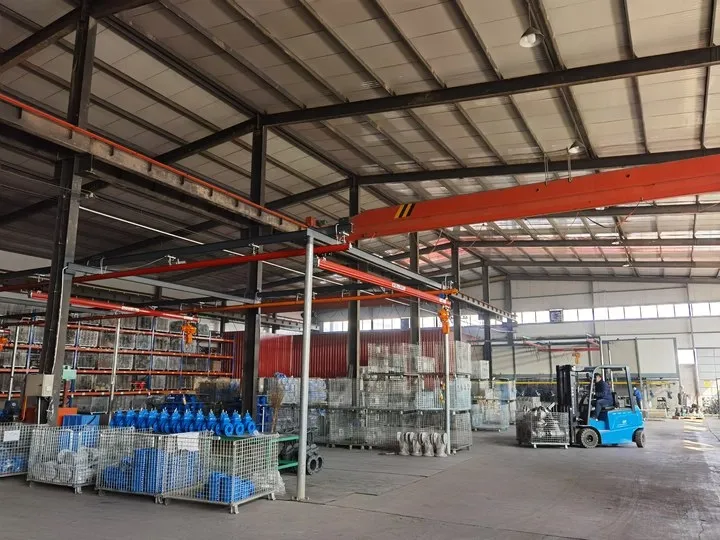Similar Specifications for DN 40 Flange in Industrial Applications
Understanding the DN 40 Flange A Comprehensive Overview
In the world of piping and industrial applications, the term DN refers to the Diameter Nominal designation, which is an essential parameter in the specification and categorization of pipes and flanges. The DN 40 flange is a crucial component in various systems, particularly in the processing industries, water treatment facilities, and HVAC systems. This article explores the characteristics, applications, and types of DN 40 flanges, providing a thorough understanding of this important component.
What is a DN 40 Flange?
The DN 40 flange corresponds to a nominal diameter of 40 millimeters. Flanges are mechanical components used to connect pipes, valves, pumps, and other equipment in a piping system. They can be fabricated from a variety of materials, such as stainless steel, carbon steel, and plastic, and they come in various pressure ratings to accommodate different operational needs.
The DN 40 flange is typically designed according to international standards such as the ASME (American Society of Mechanical Engineers) or the ISO (International Organization for Standardization). These standards ensure that flanges are compatible and can be used interchangeably across different manufacturers and applications.
Key Features of DN 40 Flanges
1. Size and Compatibility The DN designation indicates the size of the flange, which makes it essential for ensuring that connections are secure and leak-proof. A DN 40 flange would connect to a pipe with a nominal diameter of 40 mm.
2. Pressure Ratings DN 40 flanges can be designed to withstand various pressure levels, typically classified as PN 6, PN 10, PN 16, and so forth, where PN stands for pressure nominal. The choice of pressure rating depends largely on the application and the media being transported.
3. Material Selection The material of the flange affects its strength, corrosion resistance, and suitability for specific environments. Stainless steel flanges are commonly used for their durability, while plastic flanges may be employed in corrosive applications.
4. Operating Conditions DN 40 flanges are often used in both high-temperature and low-temperature conditions, making it essential to choose the right material and design based on the process requirements.
Applications of DN 40 Flanges
dn 40 flange

DN 40 flanges find a wide variety of applications across multiple industries
1. Water and Wastewater Treatment DN 40 flanges are frequently used in piping systems for water supply and wastewater treatment facilities. They ensure secure connections between pipes and treatment equipment, facilitating the effective movement of water.
2. Manufacturing and Processing In chemical plants and manufacturing facilities, DN 40 flanges are commonly used to connect valves and pumps involved in the processing of fluids and gases, ensuring efficient flow management.
3. HVAC Systems Heating, ventilation, and air conditioning systems often utilize DN 40 flanges for connecting ducts and piping, making them integral to maintaining environmental comfort in commercial and industrial spaces.
4. Marine Applications In marine engineering, DN 40 flanges are utilized in plumbing systems onboard vessels, helping to transport water and other fluids in a reliable manner.
Types of DN 40 Flanges
DN 40 flanges come in several designs, including but not limited to
- Welded Flanges These are designed to be weld-mounted on pipes for a permanent connection. - Slip-On Flanges These allow for easy installation, as they slip over the pipe before being welded. - Blind Flanges Used to close off the ends of piping systems. - Socket Weld Flanges Designed for precision in high-pressure piping applications.
Conclusion
In conclusion, the DN 40 flange is a vital element in the maintenance of effective and secure piping systems across various industries. Understanding its features, applications, and types is essential for engineers and professionals involved in designing and maintaining fluid transport systems. With proper selection and installation, DN 40 flanges contribute significantly to operational reliability and system efficiency, making them indispensable in modern industrial applications.
-
High-Security Lockable Gas Valve - Tamper-Proof ControlNewsAug.30,2025
-
Reliable Hydraulic Valves for Efficient Fluid ControlNewsAug.29,2025
-
Reliable Electric Actuators for Industrial Valve AutomationNewsAug.29,2025
-
Premium Line Blind Valves for Secure Pipeline IsolationNewsAug.29,2025
-
Premium Electric Valves for Smart Fluid Control SolutionsNewsAug.29,2025
-
Precision Balanced Valves for Optimal System PerformanceNewsAug.29,2025
-
Heavy-Duty Flanged Butterfly Valves for Water SystemsNewsAug.29,2025




